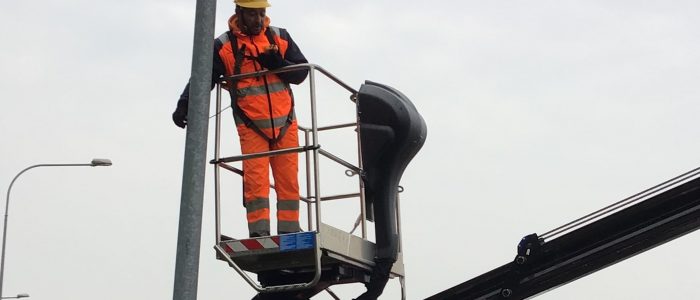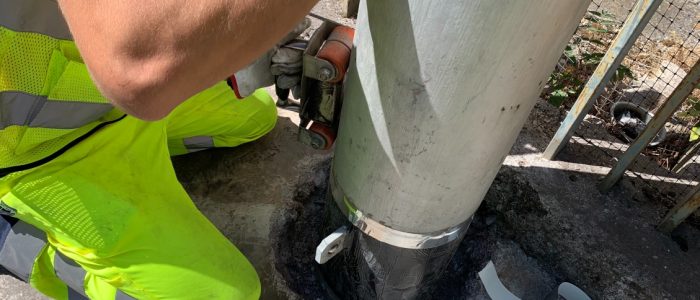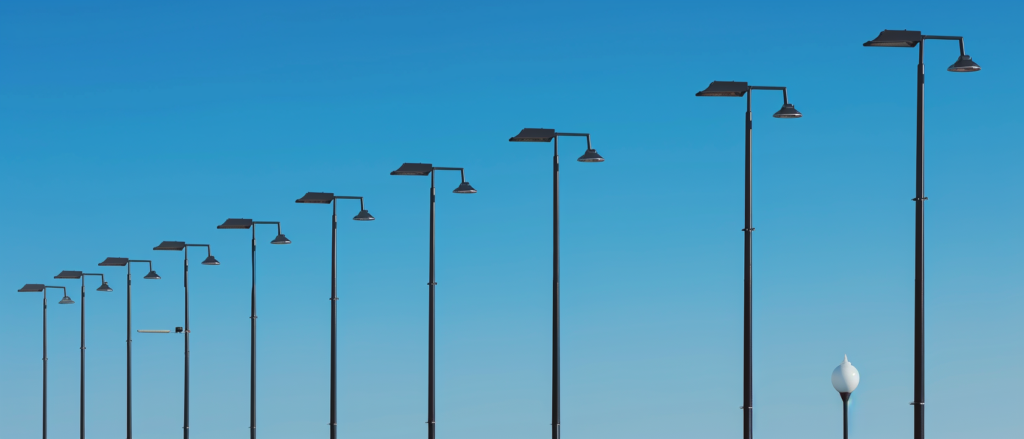Home » Other non-destructive tests » Corrosion Control of Public Administration Poles » Corrosion testing with LPR technique Linear Polarization Method
CORROSION TESTING WITH LPR TECHNIQUE
CORROSION TESTING WITH LPR TECHNIQUE / LINEAR POLARIZATION METHOD (LPR)
THE METHOD
The linear polarization method is a completely innovative solution compared to traditional techniques which are commonly used for measuring the level of corrosion of the supports of public lighting.
With the aid of specific equipment, called corrosion meters, the values of polarization speed are transmitted by the probes inserted into the ground to a computer which processes them. Based on the results, the corrosion meter establishes the pole’s degree of corrosion and the time interval until the next examination.
ADVANTAGES
Below we present just some of the most obvious benefits that this technology offers:
- Greater speed control
- Economy
- Less invasive (not mandatory to remove the plinth and the sheath to check the area of joint)
- Ability to measure the extent of the phenomenon even in areas below with respect to the area of joint
After the check a certification of all checks carried out will be produced, with the detail of the determined values. Centrotest certification spares the managing entity from any liability resulting from damages arising from corrosion of the supports.
With the same methodology it is possible to carry out checks on:
- Poles and towers pods for lighting
- Supports the power cables of the railway networks
- Fixing bolts of towers pods
- Flagpoles , traffic light poles , road signs
- Support poles of the power cables tramway or trolleybus
AVAILABLE EQUIPMENT
- 6 patented T100 digital corrosion meters with residual life estimation and pole geolocation.
MAIN REFERENCE STANDARDS
- UNI TS 11479
- ASTM G96
- ASTM G102-89





